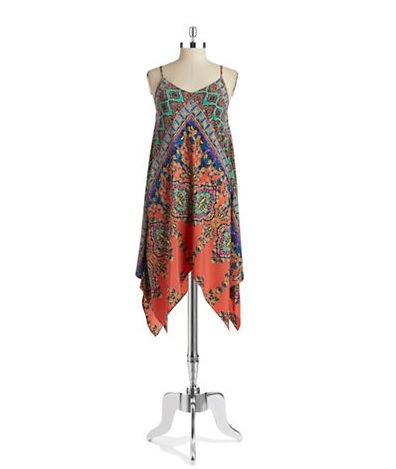
If you want a story of what not to do when it comes to working with influencers and the Federal Trade Commission (FTC), look to Lord & Taylor.
To promote their new clothing line collection, Design Lab, Lord & Taylor sought out influencers on Instagram. They sent a piece from the collection – a paisley dress – to 50 influencers, and paid each of them $1,000-4,000 to post a picture of themselves wearing the dress on a specific day (“product bomb”). The agreement with each influencer was that they would use certain campaign designations and hashtags and that Lord & Taylor would review and approve these posts prior to the product bomb day.

This is where this story hurts my head:
- Lord & Taylor didn’t require the influencers to disclose that these posts were part of a campaign.
- When Lord & Taylor reviewed each post, they didn’t insist that the influencers add this information.
- None of the 50 influencers who were paid to post a picture of themselves wearing the paisley dress included the disclaimer or asked about it.
How can marketing professionals claim they’re competent at creating social media campaigns and not know about the basic FTC rules about native advertising?
How can an influencer who wants to use their social media platforms as a business and not know the basic rules of the game? The rules are not hard to follow:
- Only give your truthful and accurate review of products, and
- Always disclose when you have a relationship with a company.
If a company doesn’t want you to do this, send them a link to the FTC rules and run away as fast as you can. If they don’t understand these basic rules, they don’t know what they’re doing. I’d be worried about what else they’re doing wrong.
Companies should insist on these disclosures. When I did product reviews, my contract required me to include what I liked and didn’t like about the product and to always disclose that I got to use each product for free.
Luckily for Lord & Taylor, they appear to have gotten off with a warning. The FTC could have fined them or their influencers up to $11,000 per violation ($11K x 50 influencer posts = $550K). The next company that makes this mistake may not be so lucky.
I’m looking forward to speaking on this topic at BlogPaws to help bloggers avoid getting in hot water. If you want to talk with me about the FTC rules and social media law, you can contact me directly or connect with me on Twitter, Facebook, YouTube, or LinkedIn. You can also get access to more exclusive content, entrepreneurial tips, and rants that are available only to people on my mailing list, by subscribing here.
4 responses to “The Paisley Dress and the FTC: A Cautionary Tale”
Whew~ I would have thought that a company as big as Lord & Taylor that has been in business forever would have known better.
I would think so too, but I don’t know if this was the work of an internal marketing department or external marketing agency and whether they had a proper education about social media marketing.
[…] to be accused of an FTC violation. Don’t count on the other side to educate you. As we saw in the Lord &Taylor situation, companies who seek to partner with social media influencers don’t always know and […]
[…] clearly and succinctly – in every post and platform you mention them. We also reviewed the Lord & Taylor fiasco. This was a good reminder for social media influencers not to assume the companies they work with […]